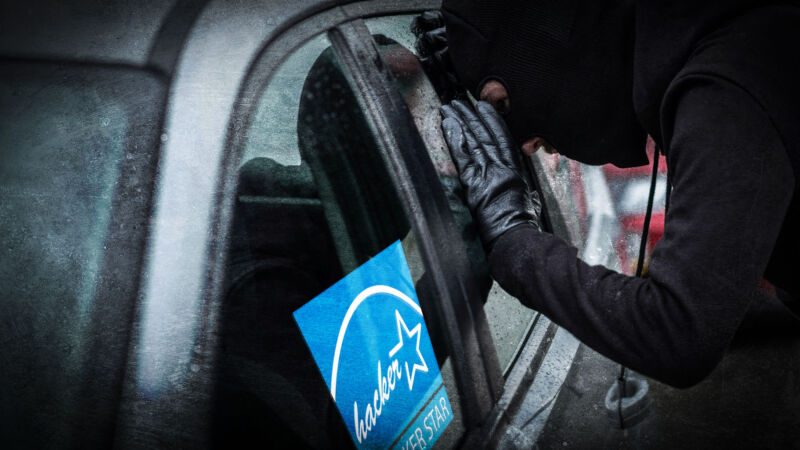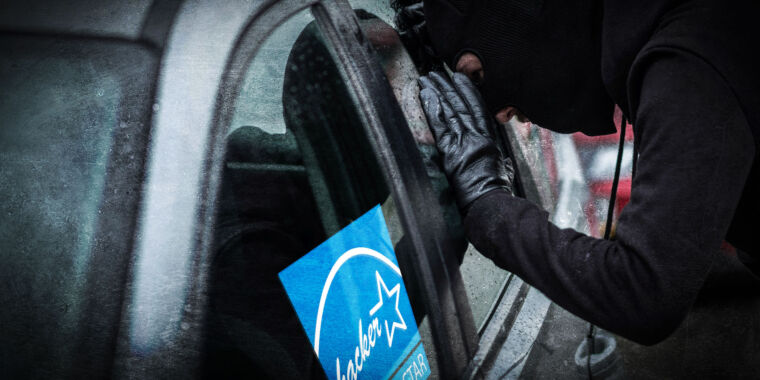74% say connected cars and EV chargers need cybersecurity ratings

Aurich Lawson | Getty Images
Almost 3 in 4 people think that connected cars and electric vehicle chargers should be rated for their ability to resist cybersecurity threats. That’s the finding from a survey conducted last week by BlackBerry to see whether people consider Internet-connected devices (also known as the Internet of Things) to be secure from hacking threats.
The survey was commissioned in response to a new White House initiative announced on Wednesday. The Biden administration plans to launch a labeling program for IoT devices in 2023, similar to the EnergyStar ratings that tell consumers how much electricity a TV or appliance will use.
The White House wants the National Institute of Standards and Technology and the Federal Trade Commission to come up with a basic set of security standards so that Americans can tell at a glance whether that new speaker or washing machine is in danger of joining a botnet or getting hit with ransomware.
Perhaps alarmingly for Ars readers, only 54 percent of the 1,008 people surveyed said they are concerned about Internet-connected devices in their homes being hacked. And just 32 percent said they own IoT devices that they do not let access the Internet due to security concerns. But 82 percent agreed that a cybersecurity rating like EnergyStar would make them feel more informed about connected devices.
BlackBerry also asked, “Do you think a cybersecurity/’star rating’ system should be extended to connected cars and electric vehicle charging stations?” Overwhelmingly, respondents did, with 74 percent agreeing with that statement.
There’s no indication yet that the White House, NIST, or the FTC plan to include connected cars or EV chargers in the new labeling scheme, but there’s probably a better chance of that happening than every connected car being fitted with a physical kill switch to disconnect it.


